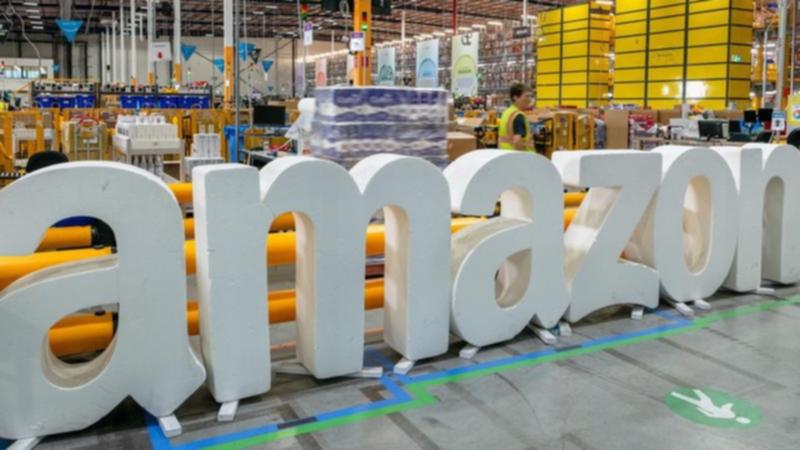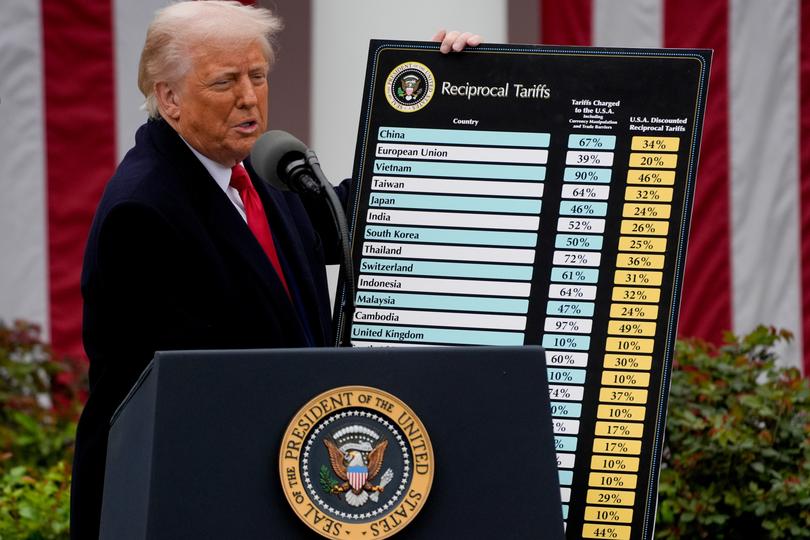THE WASHINGTON POST: Tariffs create costly chaos for Amazon sellers - even the Donald Trump supporters
THE WASHINGTON POST: Even those who welcomed Trump’s response to what they describe as unfair competition from China are starting to feel worried.

Last week, Gina Castagnozzi signed off on a contract to ship thousands of compostable dog waste bags from China to Los Angeles for her pet supply business, Giving Paws. The next day, President Donald Trump raised tariffs on imports from China to 54 percent.
On Tuesday, when her goods had been at sea for days, Trump said his China tariffs would rise to 104 percent. On Wednesday, he raised them again to 125 percent.
“I can’t believe he did that,” said Castagnozzi, who worries she won’t have the cash to pay the bill when her bags arrive in about two weeks. “You have to give people enough warning to strategically plan for this.” A White House official said on Thursday that the actual rate on Chinese imports would be 145 percent.
Sign up to The Nightly's newsletters.
Get the first look at the digital newspaper, curated daily stories and breaking headlines delivered to your inbox.
By continuing you agree to our Terms and Privacy Policy.Castagnozzi is one of the many American small-business owners who source goods from overseas - especially from suppliers and factories in China - and sell them online and via e-commerce platforms like Amazon. As Trump’s mercurial trade policy sent stock markets plunging this week, those independent retailers faced acute uncertainty about how the tariffs would affect their businesses and livelihoods.
Even those who welcomed Trump’s response to what they describe as unfair competition from China are starting to feel worried.
“Is this going to work? I don’t know. We’ll see. It’s a risk,” said Casey Parris, a longtime reseller of used goods in Tampa.
Parris also runs a Facebook group with 170,000 members who sell on platforms including Amazon, eBay and Poshmark. He said some American sellers are hopeful that the tariffs will help them compete with Chinese sellers, who “destroy us on labor costs, on import costs, and shipping costs.”
Trump’s moves have included announcing that next month, he would end the de minimis tariff, an exemption for imported goods under $800 that has allowed Chinese sites like Temu and Shein to thrive by shipping goods to consumers direct from China at stunningly low prices - a model Amazon has adopted under the banner Amazon Haul.
Parris said that ending that exemption could help “level the playing field” but that sellers who support the president are still growing anxious about the impact of his trade policies.
“Even the staunchest Trump defenders are messaging me, ‘Is this going to work? Is this going to work?’ And I’m like, I don’t know. It’s above my pay grade,” he said.
Others, like Castagnozzi, say they feel paralyzed by the uncertainty of Trump’s shifting policies. This week, she called a contact at a U.S.-based manufacturer to discuss moving production out of China. The price she was quoted was double what she would pay to keep buying from China and cough up for the new tariffs, she said. And what if Trump changes his mind again?
“It could be a temporary thing. It could be a permanent thing,” Castagnozzi said of the China tariffs. “Trump has basically given people no notice.”
Jerry Vida, head of Amazon strategy at beauty product company Triton Distribution, said tariffs have created a “perfect storm.”
Some of his company’s wares, like skin-care serums, are made in factories in Wisconsin, Florida and California. But the bulk of Triton’s profits come from high-end hair curling irons and facial devices made in China. For those products, he said, there is “no manufacturing capacity … in the United States.”

To avoid his products being copied by Chinese manufacturers, Vida requires factories to sign strict noncompete agreements and spends money on intellectual property lawyers. On top of that, he said, he’s seen Amazon’s fees steadily increase.
Now, with Trump’s tariffs, he said, “all of the different factors that drive up the costs of doing business are culminating together in one complete mess.”
Vida could raise prices, but that could lose him the coveted “buy box” on Amazon’s product pages, which increases sales by allowing customers to buy products instantly.
“It may be a case where Amazon is punitive with price increases,” he said. “It’s a very delicate thing that’s kind of like threading a needle,” he said.
Vida said that in a call with an Amazon representative Tuesday, he was told the company is aware of sellers’ concerns. “They know what’s going on,” he said.
Amazon declined to comment on this story but pointed to company blog posts about its commitment to customers. Amazon founder Jeff Bezos owns The Washington Post.
Vida’s business received a shipment of about 8,000 products from China before Trump’s tariffs went into effect. But he needs to line up his next big order in time to prepare for one of the biggest events of the year for Amazon sellers: the company’s annual Prime Day promotion in July, which he relies on to turn a profit.
“I’m really hoping this is short-lived and they come to an agreement before I start shipping this product,” he said of Trump’s trade war with China, “because it’s not too far off.”
Looking at a calendar, Vida estimated that he needs to place that Prime Day order soon, given that it takes 30 days for a Chinese factory to make his goods, then three or four weeks for shipping and to clear U.S. customs. Then Amazon has to distribute goods throughout its logistics network.
It is impossible to know whether Trump will reduce his tariffs on China before Vida must make that order. The president wrote “BE COOL!” in a post on Truth Social on Wednesday morning, but Vida said the pressure from the decisions he faces is “gut wrenching.”
“I employ people, and I’m responsible for those people to be able to pay their mortgage and put food on their table and make sure their kids have clothes,” he said. “I want American jobs here. … I really do. That means more Americans have more money to spend to buy all the things I sell.”
“But,” Vida said of Trump’s tariffs, “I just don’t know if the implementation of it was done in the best way.”
© 2025 , The Washington Post
